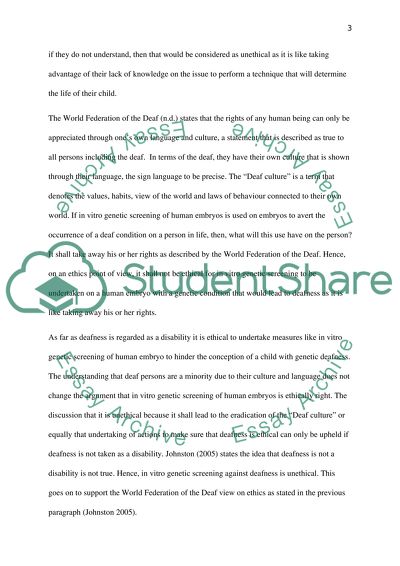Cite this document
(“Attitudes toward Genetic Screening Essay Example | Topics and Well Written Essays - 2000 words”, n.d.)
Retrieved from https://studentshare.org/biology/1634338-attitudes-toward-genetic-screening
Retrieved from https://studentshare.org/biology/1634338-attitudes-toward-genetic-screening
(Attitudes Toward Genetic Screening Essay Example | Topics and Well Written Essays - 2000 Words)
https://studentshare.org/biology/1634338-attitudes-toward-genetic-screening.
https://studentshare.org/biology/1634338-attitudes-toward-genetic-screening.
“Attitudes Toward Genetic Screening Essay Example | Topics and Well Written Essays - 2000 Words”, n.d. https://studentshare.org/biology/1634338-attitudes-toward-genetic-screening.


